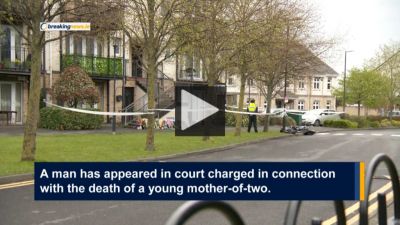A man who stabbed his ex-wife's partner to death during an "argument" in the early hours has gone on trial charged with murder at the Central Criminal Court.
Bernard Condon SC for the Director of Public Prosecutions (DPP) opened the trial by telling the jury of six men and six women that the accused man Anthony Paget stabbed Aidan McMenamy seven times in the neck and back causing his death.
Mr Condon said the prosecution case is that from the injuries suffered by the deceased, the jury will be able to deduce that Mr Paget intended to kill or cause serious injury and is therefore guilty of murder.
Mr Paget (46) of Carnlough Road, Cabra, Dublin 7 has pleaded not guilty to murder but guilty to manslaughter for the killing of Mr McMenamy (45) at Clinch's Court, North Strand, Dublin 3 on July 19th, 2019.
Socialise
Detailing the background to the case, Mr Condon said father-of-five Aidan McMenamy lived at Clinch's Court in a property owned by the Peter McVerry Trust, a housing and homeless charity. He lived with Candice Paget, the ex-wife of the accused, and was in a relationship with her. While Mr and Mrs Paget had been separated for a number of years, Mr Condon said they continued to socialise with one another at times.
In the early hours of July 19th,, 2019, counsel said, CCTV footage shows Mr Paget and his ex-wife together in various parts of Dublin city.
At about 3am they went to a McDonald's in the city centre and then to Clinch's Court, where Mr McMenamy had spent the night at home. At about 3.39am "an argument of sorts" broke out, counsel said, between the accused and the deceased that was partly captured by CCTV.
Mr Paget "wielded a knife", counsel said, "and struck at Mr McMenamy". Neighbours heard a disturbance and called emergency services who found Mr McMenamy "very severely injured". He was rushed to hospital where he was pronounced dead later that morning.
Stab wounds
Assistant State Pathologist Dr Margot Bolster examined the body and found seven stab wounds to Mr McMenamy's neck and back.She found no defensive wounds, Mr Condon said.
Counsel said the jury will also see the knife that the prosecution alleges was used and will hear DNA evidence related to the knife.

He further explained that the fundamental issue for the jury to decide is whether the killing was murder. He added: "It is clear that it was an unlawful killing. The accused man says it is merely manslaughter and the prosecution contends for murder. You will have to decide."
For an unlawful killing to be murder, counsel said, the prosecution must prove beyond reasonable doubt that the accused person intended to kill or cause serious injury.
The jury can presume that the accused intended "the natural and probable consequences of his actions", counsel said. He added: "One can look at those injuries inflicted on him and deduce the intention to kill or cause serious injury."







